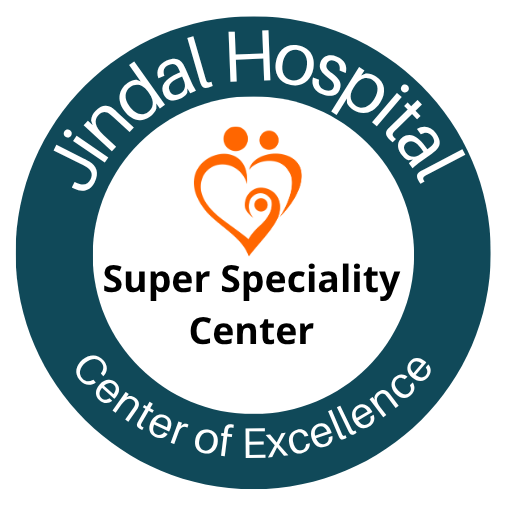What is IVF with Egg Donor?
In cases where a couple struggles with infertility and the woman is unable to produce healthy eggs, IVF with Egg Donation becomes a viable option. This procedure involves using eggs donated by another woman to achieve pregnancy through in vitro fertilization (IVF) techniques.
When is Egg Donation Used?
- When a woman has ovarian issues affecting egg quality.
- Presence of genetic disorders that may impact the baby’s health.
- Advanced maternal age, where egg quality declines.
Requirements for Egg Donors
- Age between 21 to 36 years.
- Having at least one healthy, naturally born child.
- Good physical health and mental well-being.
- Absence of genetic, hereditary, or infectious diseases that could be transmitted to the offspring.
Screening Tests for Egg Donors
- Physical examination by a physician.
- Blood tests for various health markers.
- Ultrasound and reproductive organ assessments.
- Screening for infectious diseases.
- Testing for common hereditary conditions or genetic disorders.
- Regular screening for drugs, tobacco, and other substances.
- Mental health evaluation to ensure emotional well-being.
Egg Donor Selection Process
At Jindal Hospital, egg donors are carefully selected based on their suitability to the couple’s preferences. This includes matching phenotypic characteristics and considering personal preferences of the recipients. The goal is to ensure a healthy and successful IVF procedure with optimal chances of pregnancy. ART banks provide appropriate donors.
Understanding Egg Donation in IVF
What is Egg Donation in IVF?
In vitro fertilization (IVF) with egg donation is a procedure where a woman uses donated eggs from either an anonymous or known donor to achieve pregnancy. This method is especially beneficial for women who cannot conceive with their own eggs due to various reasons such as advanced maternal age, genetic abnormalities, or other gamete issues.
Is Ovum Donation the Same as Egg Donation?
Yes, ovum donation and egg donation are synonymous terms used interchangeably in the context of assisted reproduction. Both refer to the process of using donated eggs to facilitate pregnancy for women who are unable to use their own eggs.
Advantages of Egg Donation in IVF
IVF with egg donation offers several advantages, including a high probability of success in achieving pregnancy. This method becomes particularly crucial for women facing challenges with their own egg quality or availability.
When is Egg Donation Recommended?
- Women without ovarian function due to conditions like primary ovarian failure, premature ovarian failure, or menopause.
- Women with ovarian function but unable to use their own eggs due to genetic abnormalities, repeated IVF failures, or advanced maternal age (typically over 43 years).
Types of Egg Donation
- Fresh Egg Donation:
- Involves synchronizing the hormonal cycles of the egg donor and recipient.
- Donor eggs are retrieved and immediately used for IVF, with resulting embryos transferred to the recipient’s uterus.
- Vitrified Egg Donation:
- Does not require synchronization of cycles between donor and recipient.
- Donor eggs are retrieved and then frozen using vitrification.
- Eggs are thawed and fertilized with sperm when a compatible recipient is ready for IVF.
- Bank Eggs:
- Eggs can be used fresh (recently donated) or frozen.
- Donor eggs are either obtained from the ART bank.
- Eggs are used for IVF after synchronization with the recipient’s cycle or thawed when needed.
Conclusion
Egg donation in IVF is a carefully managed process that aims to maximize the chances of successful pregnancy for the recipient. The choice of egg donation type often depends on factors such as the clinic’s protocols, donor availability, and the recipient’s preferences.
Overview
The egg donation process in IVF involves two main phases: ovarian stimulation and follicular puncture. This method allows for the collection of multiple mature eggs from the donor, which are then used to assist another woman in achieving pregnancy.
Ovarian Stimulation
- Purpose: In a natural cycle, only one egg matures, but with ovarian stimulation, multiple eggs can be encouraged to mature.
- Hormone Therapy:
- The donor self-administers subcutaneous injections of hormones like follicle-stimulating hormone (FSH) and luteinizing hormone (LH).
- These hormones promote the growth and maturation of multiple eggs.
- GnRH Analogues: These are also given to control hormone levels and prevent premature ovulation.
- Monitoring:
- The donor visits the clinic every 2 days for ultrasound and blood tests.
- Estrogen levels and follicle size are monitored to track egg development.
- Duration: The stimulation treatment typically lasts 10–12 days.
Follicular Puncture
- Purpose: This is the surgical procedure to retrieve mature eggs from the ovaries.
- Timing: Puncture is scheduled just before natural ovulation.
- Procedure:
- The donor undergoes a 20–30 minute procedure under general anesthesia.
- The doctor, guided by ultrasound, aspirates the fluid from the follicles containing the eggs.
- This is done trans-vaginally, leaving no visible scars.
- Recovery:
- The donor spends a short time in the recovery room before going home.
- Some discomfort may be felt, but pain is minimal.
- Normal activities can usually be resumed in a few days.
- Aftercare:
- The donor’s menstrual cycle returns to normal within about two weeks.
What Happens to Donated Eggs?
- Recipient Matching: Donated eggs are used for women undergoing IVF who cannot use their own eggs.
- Synchronization:
- For fresh donations, cycles of donor and recipient are synchronized.
- For frozen (vitrified) eggs, synchronization is not needed.
- Selection: Donors are matched based on immunological compatibility and physical traits.
Risks for the Donor
- Ovarian Hyperstimulation Syndrome (OHSS):
- Excessive response to hormonal stimulation.
- Symptoms may include dizziness, nausea, fever, etc.
- Procedure Risks:
- Infections related to follicular puncture.
- Potential side effects from anesthesia.
- Impact on Fertility:
- Donating eggs does not usually affect the donor’s future fertility.
- The eggs used are typically from a group that would have degenerated naturally.
Conclusion
The egg donation process in IVF is a well-managed procedure that involves careful hormone stimulation and surgical egg retrieval. Donors play a crucial role in helping other women achieve their dream of pregnancy, with minimal risks to their own health and fertility.


